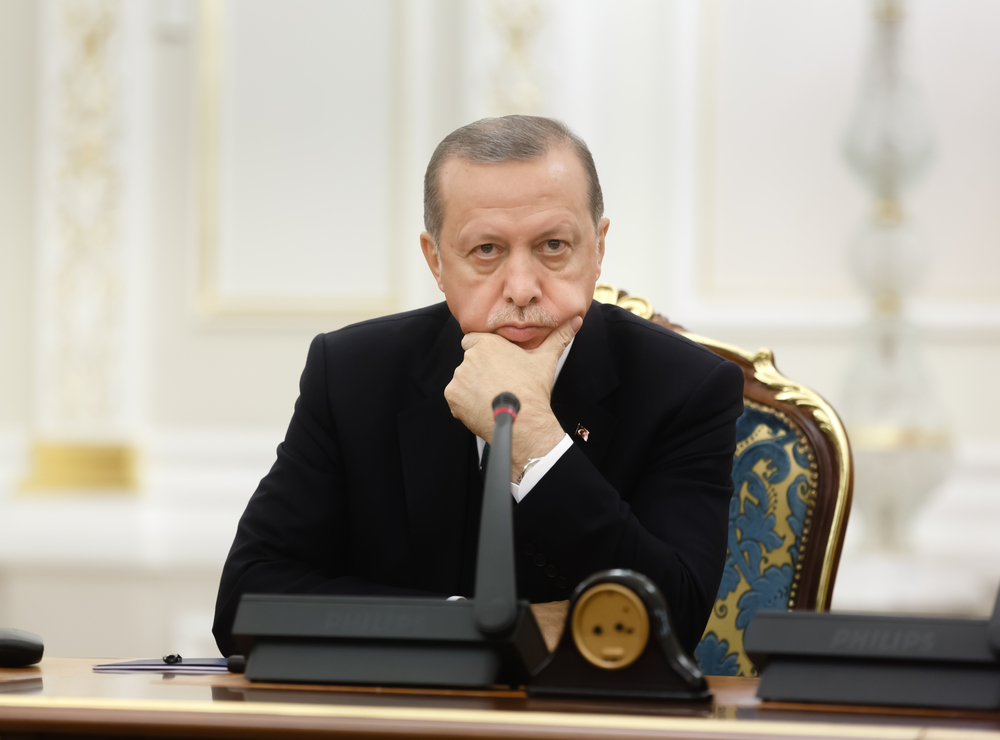There is no longer any doubt that Recep Tayyip Erdogan is an autocrat and an Islamist. He seeks to monopolize power, accumulate wealth for his immediate family, and change the principles upon which Turkish society operates. Turkey, however, like Saudi Arabia and Pakistan, maintains a strange romanticism among many of the diplomats who served there. The hospitality in each country is legendary, and each offers golden parachutes to former ambassadors in terms of lobbying or business opportunities, consultancies, or open doors to fundraising for those entering the university, think tank, or nonprofit realm. The result is vocal informal lobbies of those sympathetic to these national narratives within the U.S. policy debate.
Turkey’s behavior has, for decades, been inexcusable: support for al Qaeda affiliates and the Islamic State, ethnic cleansing against the Kurds in Syria and, more recently, the bombardment of Kurdish villages in Iraq hampering resettlement efforts for those displaced by the Islamic State, theft of natural resources from Cyprus’s exclusive economic zone, sanctions-busting with Iran, increased defense links with Russia, anti-American incitement, and a full-scale war on freedom of press and thought. Still, a small Turkey cabal within the State Department and some fellow travelers outside continue to apologize for Turkish behavior. They offer three main lines of argument.
The first is that the United States has not been sensitive to Turkey’s security concerns, especially with regard to the Pentagon’s partnership with Syrian Kurds. That, of course, puts the cart before the horse because the U.S. only partnered with Syrian Kurds when Turkey’s double-game became apparent.
The second accepts that Erdogan is a problem, but believes that the U.S.-Turkey relationship is too important to lose and hope that Turkey can return to the status quo ante after Erdogan’s death. This ignores the tremendous transformation Erdogan has engineered. After 17 years in power, 30 million Turks have been educated under the Turkish dictator, and nearly everyone serving in the military owes his or her career to the Turkish leader.
The third group will grasp upon any hope that Turkey’s democracy will reboot and the opposition can ultimately unseat or at least constrain Erdoğan. This group got new hope when, in June 2019, the main opposition Republican People’s Party beat out Erdogan’s party in both Istanbul and Ankara, Turkey’s two largest cities.
The problem with such wishful thinking is that it assumes Erdogan will play fair, although there is nothing in his character or record to believe he will abandon his corruption, nepotism, arrogance, his 1,100-room palace, or his religious agenda just because Turks do not agree with him or wish to hold him to account for Turkey’s failing economy.
A case in point occurred last weekend. Turkey’s press freedom has plummeted over Erdogan’s tenure. One of only two television stations that still sometimes opposes Erdogan and the ruling party twice ran afoul of Erdogan in the past week for the mildest of criticisms. In the first instance, a Republican People’s Party parliamentarian was invited as a guest and criticized the government. That an opposition parliamentarian would voice disapproval of the ruling party is a normal occurrence in any democracy. The host nodded her head, something that anchors and interviewers do all the time to signal that they were listening.
This outraged the thin-skinned Erdogan, however. The government canceled several programs and imposed a monetary penalty.
On another program, the Istanbul provincial Republican People’s Party leader was the guest. She quipped that soon the ruling party would be leaving power. It was overstated and wishful thinking, but Erdogan is unable to accept the idea that all Turks do not adore him. The penalty for “voicing an undemocratic prediction against the will of the people”? Suspension and a penalty of 5% of the channel’s monthly income.
Optimists may hope that Erdogan’s defeat in Istanbul last year signals that Turks can reclaim their country and that democracy can still check Erdogan’s desire to rule for life and perhaps turn the reins of power over to his son or son-in-law. But the lesson Erdogan appears to have taken is not that he must listen to the people, but rather, he must punish Istanbul and become more ruthless in weeding out political opposition, real or imagined.
Michael Rubin (@Mrubin1971) is a contributor to the Washington Examiner’s Beltway Confidential blog. He is a resident scholar at the American Enterprise Institute and a former Pentagon official.
Source: Washington Times



